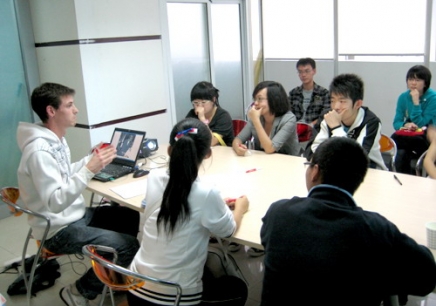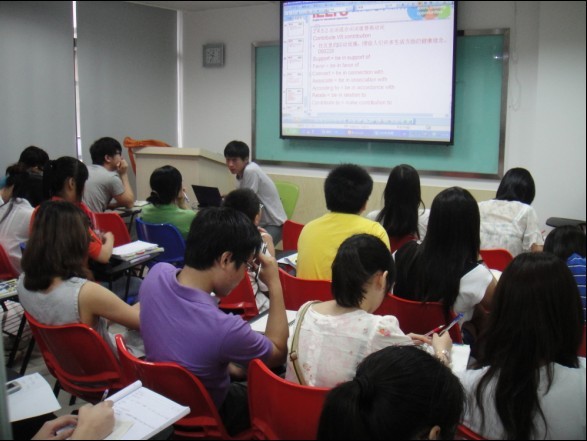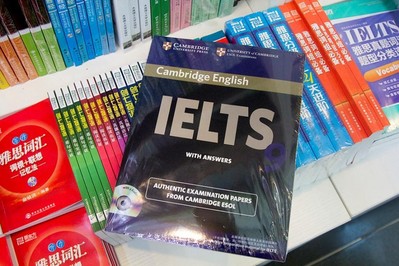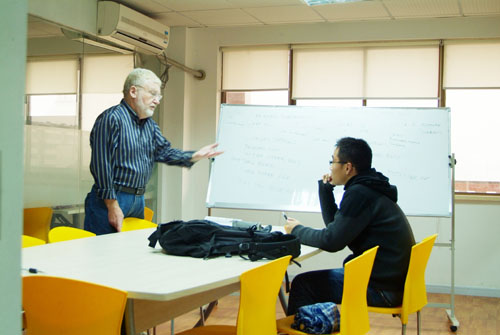 返回
教育头条
返回
教育头条

应当如何提高雅思写作水平 雅思备考
经常收到读者朋友留言询问有关雅思考试的问题,比如:口语考试中考官是如何判断出考生是在背答案的? 对学生的写作整体印象如何?学生写作方面失分较多的是四项评分标准中的哪一项?虽然我的雅思口语和写作都考了 8 分,不过对于很多问题,我其实也没有答案。
学生应当如何提高雅思写作水平?是否建议背诵一些好词好句?背诵范文有没有用?
Dr. IELTS: The easiest way to get a higher score in writing is to cover the WHOLE prompt. For example, in task 2, if the prompt is: “For education, some people say that students should study abroad if they want to learn a language and culture. To what extent do you agree or disagree with this statement?” some candidates only cover language or culture. A lot of candidates only state if they agree or disagree with this statement. They probably don’t know what extent means, which makes it difficult to fully answer the prompt. Simply put, if candidates don’t cover all parts of the task, their score will be lower.
For Task 1, there will be a picture and/or graph and the candidate is supposed to transfer the information they see into words. If candidates want to get a higher score, they should include EVERYTHING. And I mean everything. What kind of graph (i.e. bar, line, pie); what each line looks like… The key to the graph (i.e. A is the dotted line, B is the solid line, C is the light-colored line). And of course the main features/important points. The examiner needs to be able to reproduce the graph/picture almost perfectly from the words the candidate writes, without looking at the graph.If the examiner cannot, the candidate will probably get a score that is lower than a 6.
To get a 6 for Task 1, the candidate needs to present an overview. This is a general summary of the information given, highlighting the general trends of the graph along with its important points and features. A lot of candidates write all the details of the graph but don’t summarizeit correctly. If you include the overall trends of the graph in your Task 1 along with all the other details, then you will probably get a 6.
I say this because examiners will debate endlessly what an overview is. Some examiners say the overview needs to have A, B, andC. Some say only A and B. If there was a standard overview for every task 1, then a computer would be able to generate a score, which would put us out of a job.
Regarding what vocabulary to know and use, read/skim all sorts of newspapers and books (The Economist, The Guardian and most other publications; for books, any book is always a good source) to get higher level words. Another important thing to know is once you know these words, find out what other situations you can use them. The more situations you can use these words, the higher level your writing will be. This is called collocation, using certain words that go together and not others. For example, we would never say tea is powerful, but we would say tea is strong.

Regarding if you should memorize sample essays to help you with your writing, NEVER do that. This constitutes cheating. If examiners find proof that what you wrote is plagiarizedfrom another source, you will not receive a score and might be banned from taking the test. Candidates are highly encouraged to take certain concepts and basic structures from these samples andreproduce them in their own way.
学生应当如何提高雅思写作水平?是否建议背诵一些好词好句?背诵范文有没有用?
Dr. IELTS: The easiest way to get a higher score in writing is to cover the WHOLE prompt. For example, in task 2, if the prompt is: “For education, some people say that students should study abroad if they want to learn a language and culture. To what extent do you agree or disagree with this statement?” some candidates only cover language or culture. A lot of candidates only state if they agree or disagree with this statement. They probably don’t know what extent means, which makes it difficult to fully answer the prompt. Simply put, if candidates don’t cover all parts of the task, their score will be lower.
For Task 1, there will be a picture and/or graph and the candidate is supposed to transfer the information they see into words. If candidates want to get a higher score, they should include EVERYTHING. And I mean everything. What kind of graph (i.e. bar, line, pie); what each line looks like… The key to the graph (i.e. A is the dotted line, B is the solid line, C is the light-colored line). And of course the main features/important points. The examiner needs to be able to reproduce the graph/picture almost perfectly from the words the candidate writes, without looking at the graph.If the examiner cannot, the candidate will probably get a score that is lower than a 6.
To get a 6 for Task 1, the candidate needs to present an overview. This is a general summary of the information given, highlighting the general trends of the graph along with its important points and features. A lot of candidates write all the details of the graph but don’t summarizeit correctly. If you include the overall trends of the graph in your Task 1 along with all the other details, then you will probably get a 6.
I say this because examiners will debate endlessly what an overview is. Some examiners say the overview needs to have A, B, andC. Some say only A and B. If there was a standard overview for every task 1, then a computer would be able to generate a score, which would put us out of a job.
Regarding what vocabulary to know and use, read/skim all sorts of newspapers and books (The Economist, The Guardian and most other publications; for books, any book is always a good source) to get higher level words. Another important thing to know is once you know these words, find out what other situations you can use them. The more situations you can use these words, the higher level your writing will be. This is called collocation, using certain words that go together and not others. For example, we would never say tea is powerful, but we would say tea is strong.

Regarding if you should memorize sample essays to help you with your writing, NEVER do that. This constitutes cheating. If examiners find proof that what you wrote is plagiarizedfrom another source, you will not receive a score and might be banned from taking the test. Candidates are highly encouraged to take certain concepts and basic structures from these samples andreproduce them in their own way.
谢谢你,阅读了这篇文章。我是教育宝学习顾问王敏,如何选择雅思是一个比较复杂的问题,雅思市场鱼龙混杂,广告铺天盖地,每家机构都把自己包装的天花乱坠,如何选择一家合适的机构?这是很多人都头疼的问题,选错机构不是费钱,而是浪费时间。教育宝始终保持中立客观,累计服务200万用户,致力于连接培训机构和学员,打造可靠、高效、让人放心的一站式互联网学习服务平台,如果你不知道雅思机构如何选,那么请让我来帮助你,加我微信:18560125702,我会根据你的实际需求,依靠8年从业经验,从海量课程中选择适合您的服务。返回教育宝头条
【免责声明】本文仅代表作者本人观点,与教育宝无关。教育宝对文中陈述、观点判断保持中立,不对所包含内容的准确性、可靠性或完整性提供任何保证。请读者仅作参考,特此声明!





